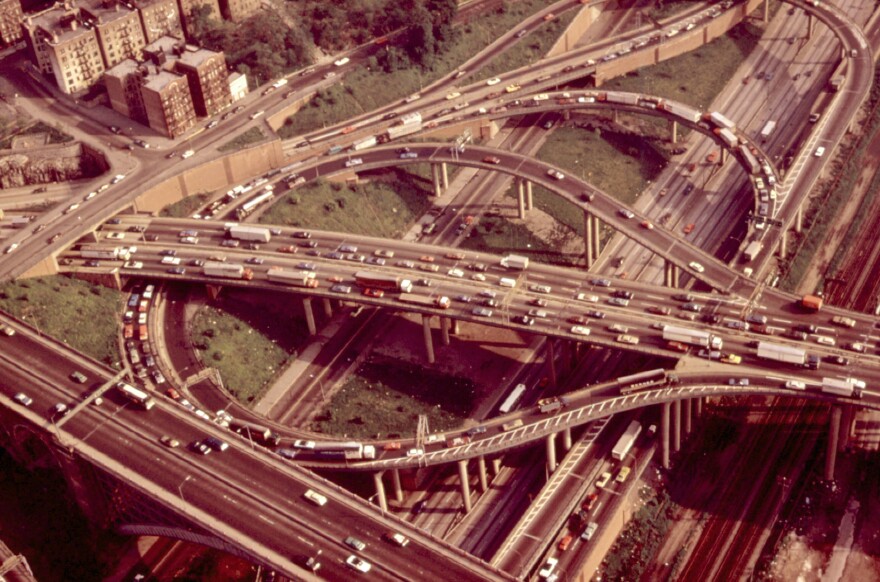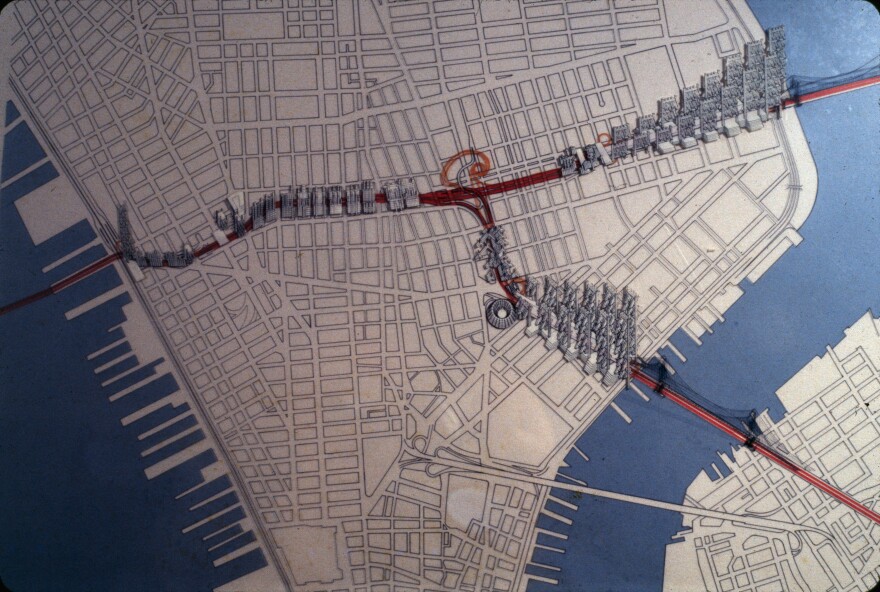Wednesday marks the 125th birthday of New Haven native Robert Moses, a powerfully influential shaper of the modern city. Moses famously carried out most of his work in appointed positions in New York City, both as head of the Triborough Bridge Authority and through public housing projects.
Moses is credited with transforming New York City -- and many cities that followed suit or took his advice, like Hartford -- into a place dominated by the automobile. He frequently recommended demolishing older, poor neighborhoods in order to carve a path for an elevated highway.
Eventually Moses had authority over nearly every public construction project underway in New York City. He created the Cross Bronx Expressway, demolishing thousands of homes in its path.

"Mr. Moses thrust many of New York's great ribbons of concrete across an older and largely settled landscape, altering it drastically," wrote Paul Goldberger in Moses's 1981 New York Times obituary. "The Moses vision of New York was less one of neighborhoods and brownstones than one of soaring towers, open parks, highways and beaches -- not the sidewalks of New York but the American dream of the open road."
In the 1950s, as the public increasingly began to realize that "urban renewal" meant "slum clearance," Moses ran into difficulty with a project called Manhattantown. Funded by the Housing Act of 1949, six blocks on New York City's Upper West Side were destroyed in favor of new development. The land was sold inexpensively to a group of Moses's associates, who then did little with it for several years.
The destroyed area included an African-American community that dated back to the early 1900s.

Moses tried and failed to build a couple other highways, too, that would have demolished older neighborhoods in Manhattan. These included the Lower Manhattan Expressway, which generated a lot of public opposition, led in part by Jane Jacobs.
The Bowery Boys blog has a post outlining a few suggestions for how to recognize this day of Moses's birth. Among them: listen to the several podcasts they've done about Moses and his effect on the New York City environment.

